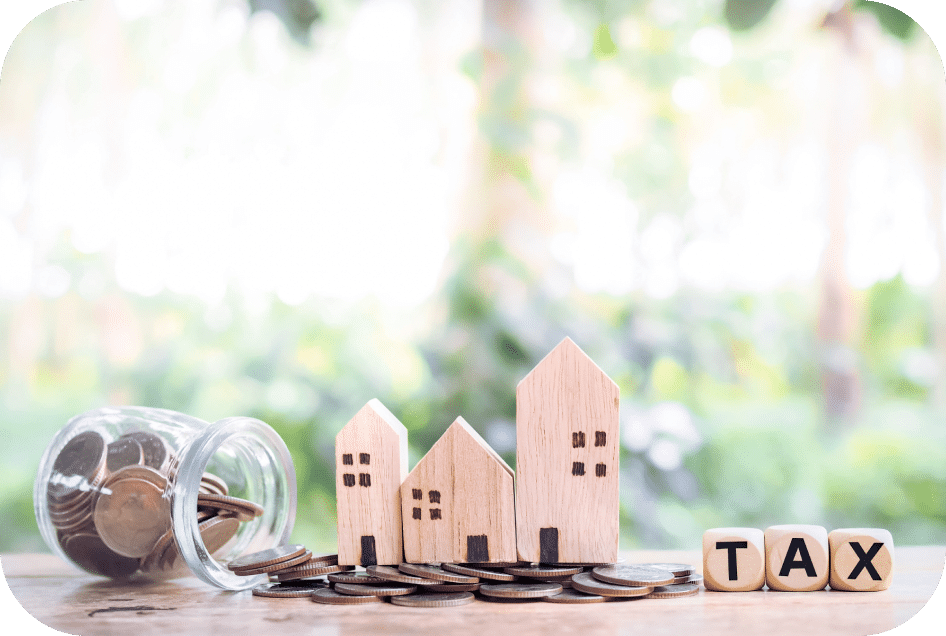Financial Benefits with an ADU
Brandon Hustlar June 21st 2024
As savvy homeowners and investors continually seek ways to optimize their real estate assets, Accessory Dwelling Units (ADUs) have emerged as a compelling solution. This edition of our newsletter dives into the financial benefits of adding an ADU to your property, focusing on Return on Investment (ROI) through rental income, increased home value, and mortgage management strategies.
1. Enhanced Property Value
Investing in an ADU can significantly increase the market value of your property. A well-designed and strategically located ADU adds useful square footage and functional living space, making your home more appealing to potential buyers. Real estate experts suggest that ADUs can boost property values by 20-30%, depending on your local market conditions and the quality of the construction.

2. Steady Rental Income Stream
One of the most immediate benefits of building an ADU is the potential to generate a steady stream of rental income which helps cover your mortgage payments or other property-related expenses. In many areas where rental demand is high, ADUs can command substantial rental prices, offering an attractive ROI that can recoup construction costs within just a few years.
Schedule a complimentary call with an ADU specialist
3. Mortgage Paydown and Early Payoff
The additional income generated from renting out an ADU can be strategically used to accelerate your mortgage paydown. Applying extra payments toward your mortgage principal can significantly reduce the total interest paid over the life of the loan and potentially shave years off your mortgage term. This approach not only improves your cash flow sooner but also enhances your equity, putting you in a stronger financial position.
4. Tax Advantages and Incentives
Beyond the direct revenue and value appreciation, constructing an ADU may also offer tax benefits. Depending on your location, you may be eligible for tax deductions related to construction expenses, property improvements, and even depreciation. Moreover, several states and municipalities offer grants, low-interest loans, or other incentives to promote ADU development, which can further offset your initial investment costs.

5. Long-Term Financial Planning
Incorporating an ADU into your property is more than just a short-term investment; it’s a long-term financial strategy. For families, an ADU can provide flexible living solutions—serving as a home for aging parents, returning college students, or as a guest house. As your life circumstances change, the ADU can adapt to meet your needs, providing both financial and functional flexibility.
Conclusion
The decision to build an ADU involves careful planning and consideration but can result in substantial financial rewards. By enhancing property value, generating income, and providing flexible living solutions, ADUs represent a wise investment in today’s dynamic real estate market.
We encourage all property owners to consider the potential of ADUs and to explore local regulations and incentives. As always, consulting with a real estate expert and a financial advisor can help tailor your investment to best fit your personal financial goals
Got more questions? Book a free call with one of our experts.
As savvy homeowners and investors continually seek ways to optimize their real estate assets, Accessory Dwelling Units (ADUs) have emerged as a compelling solution. This edition of our newsletter dives into the financial benefits of adding an ADU to your property, focusing on Return on Investment (ROI) through rental income, increased home value, and mortgage management strategies.
1. Enhanced Property Value
Investing in an ADU can significantly increase the market value of your property. A well-designed and strategically located ADU adds useful square footage and functional living space, making your home more appealing to potential buyers. Real estate experts suggest that ADUs can boost property values by 20-30%, depending on your local market conditions and the quality of the construction.

2. Steady Rental Income Stream
One of the most immediate benefits of building an ADU is the potential to generate a steady stream of rental income which helps cover your mortgage payments or other property-related expenses. In many areas where rental demand is high, ADUs can command substantial rental prices, offering an attractive ROI that can recoup construction costs within just a few years.
Schedule a complimentary call with an ADU specialist
3. Mortgage Paydown and Early Payoff
The additional income generated from renting out an ADU can be strategically used to accelerate your mortgage paydown. Applying extra payments toward your mortgage principal can significantly reduce the total interest paid over the life of the loan and potentially shave years off your mortgage term. This approach not only improves your cash flow sooner but also enhances your equity, putting you in a stronger financial position.
4. Tax Advantages and Incentives
Beyond the direct revenue and value appreciation, constructing an ADU may also offer tax benefits. Depending on your location, you may be eligible for tax deductions related to construction expenses, property improvements, and even depreciation. Moreover, several states and municipalities offer grants, low-interest loans, or other incentives to promote ADU development, which can further offset your initial investment costs.

5. Long-Term Financial Planning
Incorporating an ADU into your property is more than just a short-term investment; it’s a long-term financial strategy. For families, an ADU can provide flexible living solutions—serving as a home for aging parents, returning college students, or as a guest house. As your life circumstances change, the ADU can adapt to meet your needs, providing both financial and functional flexibility.
Conclusion
The decision to build an ADU involves careful planning and consideration but can result in substantial financial rewards. By enhancing property value, generating income, and providing flexible living solutions, ADUs represent a wise investment in today’s dynamic real estate market.
We encourage all property owners to consider the potential of ADUs and to explore local regulations and incentives. As always, consulting with a real estate expert and a financial advisor can help tailor your investment to best fit your personal financial goals
Prefab Homes
hello@homeplex.net
(424) 428-8000
145 W Broadway
Long Beach, CA 90802
DRE #02186195
© 2025. All rights reserved. HOMEPLEX, The New American Dream are registered trademarks of HOMEPLEX, INC.


